BBL Before & After
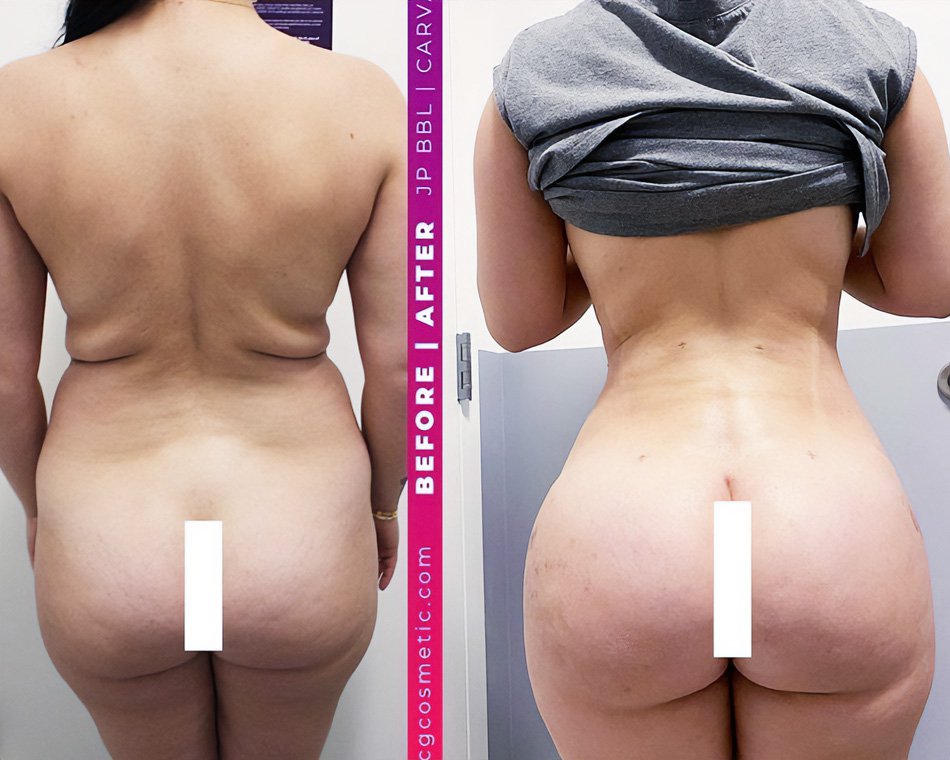
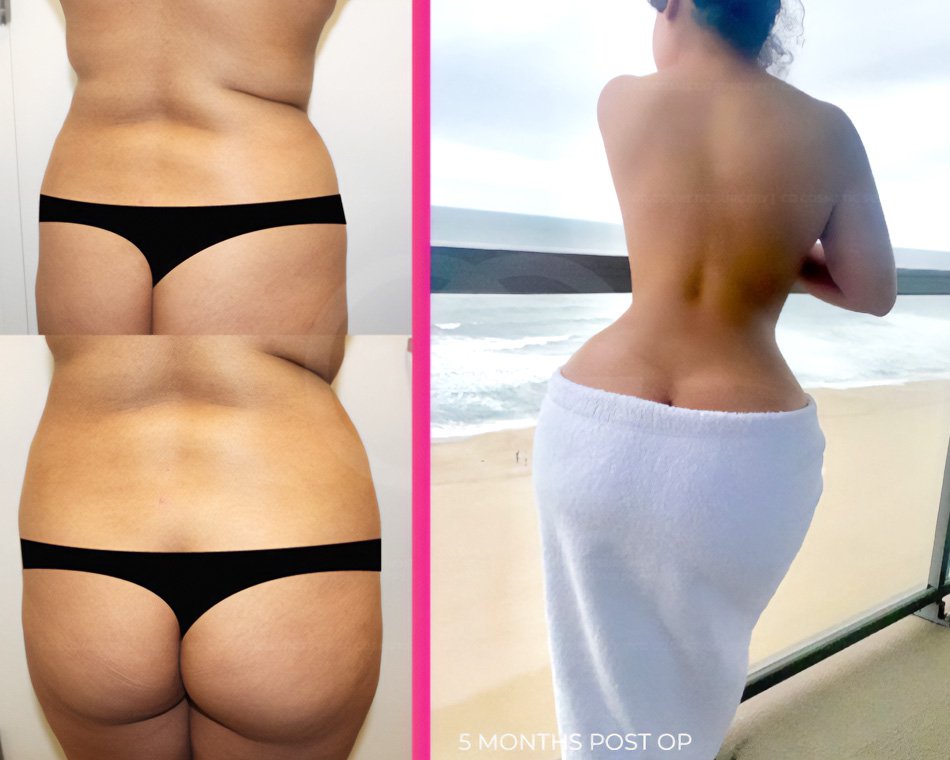
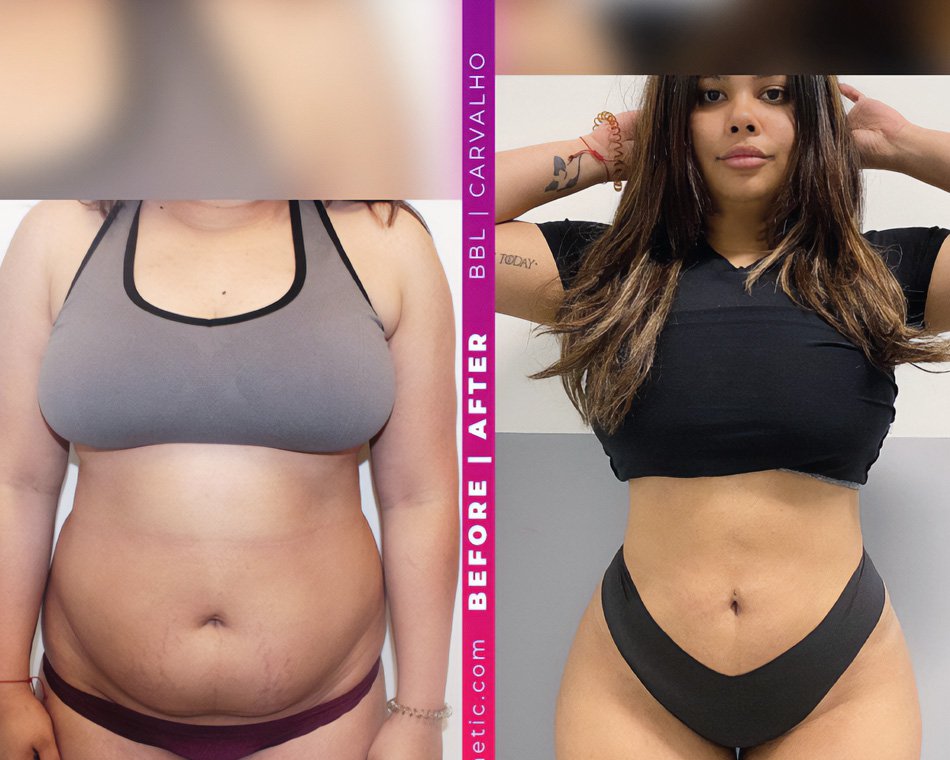

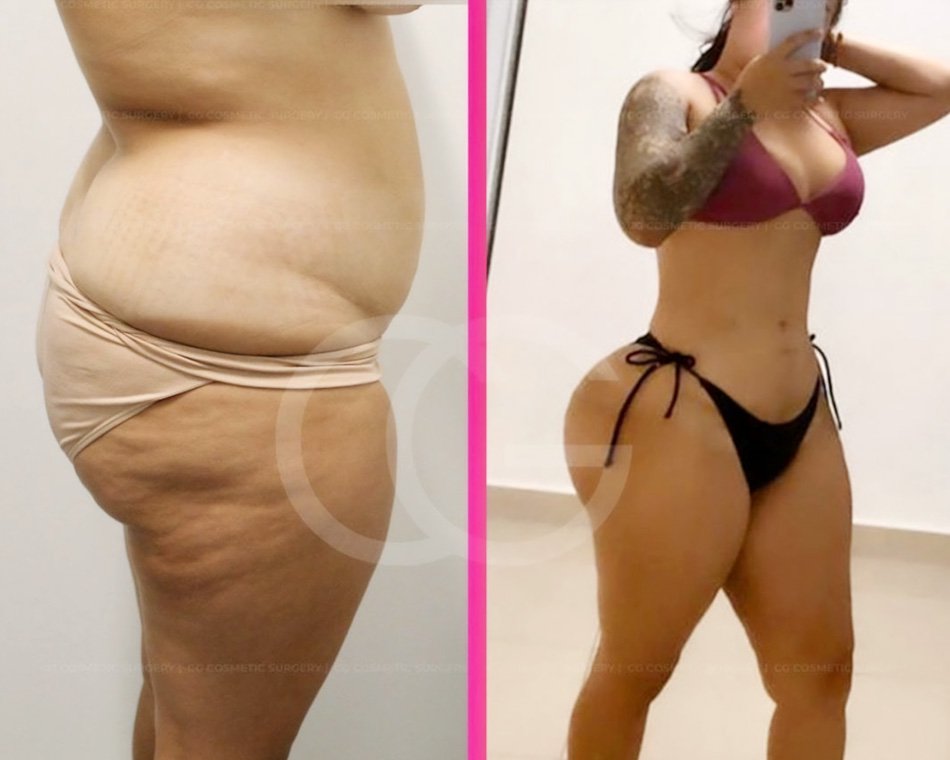

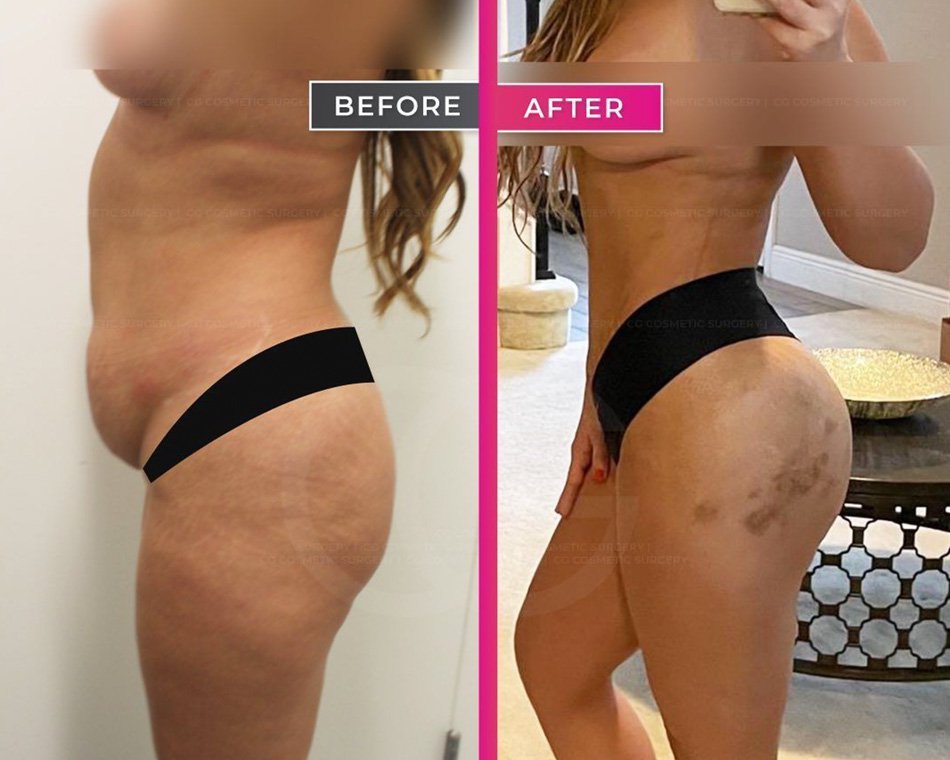
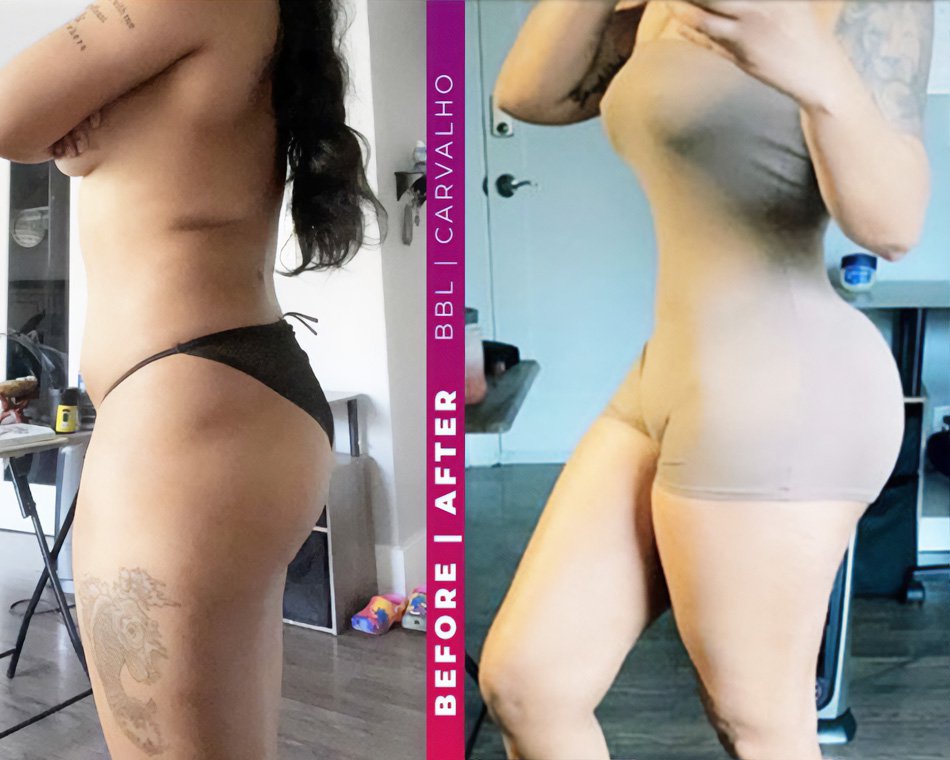
More Volume, Better Shape and Beautiful Curves
Brazilian Butt Lift - Using fat from unwanted areas such as the back, abdomen, hips, and thighs! to enhance the size and shape of the booty.









The BBL or Brazilian Butt Lift is the nickname given to a surgery that combines two different procedures; liposuction and fat transfer to the buttocks.
Liposuction is achieved by inserting a small thin hollow tube called cannula to loosen up the fat and extract it. There will be small incisions around the areas of excess fat which in the case of the BBL would be around the torso (also known as lipo 360): the back, stomach, and flanks. These incisions will then be used to drain the lymphatic liquid post-surgery during recovery.
The BBL has gained more popularity in the cosmetic surgery world due to the low risk of complications. By using your own fat cells you avoid any chances of rejection and major future side effects. Your own fat cells will be used to give your body the best enhancement with minimal risk and a smooth recovery.
Performing a Brazilian Butt lift with alternative substances can cause serious damage to your skin tissues in the long run. The most popular alternative is the biopolymer silicone injections which can seem encouraging because there is no anesthesia involved and seems “cheaper” to get but in the long run, even years after can cause serious detrimental health conditions.
The maximum amount of fat that can be removed during the BBL is 4 Liters. Once the fat is removed, it’s strategically transferred to the booty in key areas that will result in that small waist and hourglass figure.
During this procedure you will not feel any pain as you will be under general anesthesia, the duration is approximately about 2-4 hours in total.
Like any medical visit to the doctor, we will ask you to complete the initial Medical History Form (HIPPA compliance), so we can be able to evaluate if you are a right candidate for a BBL procedure. We will set up with a surgical coordinator, the doctor will revise the answers to your questionnaire and pictures to determine if you qualify.
Once Step 1 has been completed, and we know that you are the right candidate for a Brazilian butt lift, we will proceed with the following steps:
Before performing a cosmetic procedure or surgery, we must ensure that the patient is genuinely healthy. Laboratory tests are required and will depend on the characteristics of each candidate, like age, medical history, and the medications you’re taking. Some of the tests are needed to know the levels of hemoglobin, sugar, and coagulation times, among others. Please note that these exams are ordered because the patient is going to undergo a procedure that requires anesthesia. Also, we would need a medical clearance letter from your primary care physician.
There are cases where the patient presents with a pre-existing medical condition. Although many of the medical conditions are not a contraindication to undergo a surgical cosmetic procedure, the condition must be under control before proceeding with surgery.
In these cases, the surgeon may require you to visit your specialist for approval or what is known as preauthorization. It will be the specialist who will make any change or adjustment in the dose of medication if necessary. Also, it will be the person who offers plastic surgeon information about the patient's physical and mental health.
All patients over 55 years old are also required to have a recent EKG or Electrocardiogram to have sent to us before your pre-op visit.
There are several steps you can take before surgery to avoid setbacks and help you recover faster. Talk to your health care provider about the following:
The risk of getting pneumonia, an infection in the lungs, is reduced. If you use medications, ask if you should continue using them before or after the operation. Make sure your health care provider is aware of all the medications you use, both those that have been prescribed and those you buy without a prescription, such as vitamins, herbs, or other supplements. Some medications should be discontinued before an operation, while others may interact with other medications that have been prescribed for you. Follow a special diet before surgery if your healthcare provider recommends it. If you have diabetes, keep good control of your Glucose levels before surgery can promote your recovery.
The type of surgery will determine if your health care provider will want you to use a laxative and consume little food. Do not drink alcohol 24 hours before surgery.
You may be asked to use an enema at home one or two days before some types of surgery.
They may also tell you not to eat or drink anything for 6 to 12 hours before surgery. If you have eaten or drank anything during this period, tell your healthcare provider. If you have diabetes, ask your health care provider when you should eat the last meal. The health care provider will also tell you the medications you can take with a sip of water on the morning of the surgery.
You will be asked to arrive early to prepare for surgery.
Before leaving home, bathe, wash your hair and take off your nail polish or acrylic nails. Do not use makeup. Leave jewelry and other valuables at home. It is always necessary to remove all jewelry from the body before an operation. If you are scheduled to spend the night at the place of operation, bring only the items you will need, including a case for glasses, contact lenses or dentures.
They will give you an identification bracelet. This bracelet contains your name, date of birth, and the name of your surgeon. Make sure the information is correct, as it will be used to identify you during your hospital stay.
Come prepared to give your medical history and indicate if you suffer from allergies to medications, food, or latex (some surgical gloves are made with latex). You will be asked about the medications you use. It may be useful to bring a list of them.
Just before surgery, preoperative preparation occurs. Although the steps to follow vary, the following may occur:
You will be asked to remove the following
You should undress and put on a hospital gown and maybe a cap. Measures will be taken to avoid deep vein thrombosis, a risk with all types of surgery. You may be given special socks, or inflatable items that will be placed on your legs. You may be given medications to reduce the risk of deep vein thrombosis.
After they take her to the operating room, she will be transferred to an operating table. Several monitors will be connected to different parts of the body to measure the pulse, oxygen level, and blood pressure.
At that time, the surgical team may ask you again your name, date of birth, and the type of operation you will have. A final review of medical records and exams will be done. This final confirmation is called "pause" and is done for your safety. This pause can be done before a sedative is given, or you may not be awake during this process.
If general anesthesia is to be used, said anesthesia will be supplied by the serum. After you sleep, a catheter will be placed in the bladder to drain the urine.
When the operation is finished, you will be transferred to a recovery area. This area is equipped to monitor the condition of patients after surgery.
Many patients feel sleepy, confused, and have chills when they wake up from an operation. Tell your nurse if you have a headache or nausea. You may have sore muscles or sore throat shortly after surgery. These problems do not last long. You can ask for medications to relieve them. You should remain in the recovery room until it stabilizes.
During your recovery, be sure to ask for enough pain medications to help you feel comfortable. You may receive antibiotics and other medications.
You could still have the serum giving fluids. It may take a few days before you can eat solid foods. Sometimes pain medications can make you forget what happened on the day of surgery.
As soon as possible, the nurses will ask you to move as much as you can. They will encourage you to get out of bed and walk shortly after the operation. You may feel tired and weak at first. Still, the sooner you resume your activity, the faster the body will function normally again.

The aesthetic surgery training in brazil is among of the world’s best. I'am proud to be a brazilian aesthetic surgeon who works in Miami.
We treat patients with understanding, respect, honesty, and unparalleled professionalism.
Dr. Decio Carvalho combines his surgical expertise and affordability so everyone can have have access to selected procedures.
"My goal is to help you achieve yours." Using an artistic eye and delivering natural-looking results.
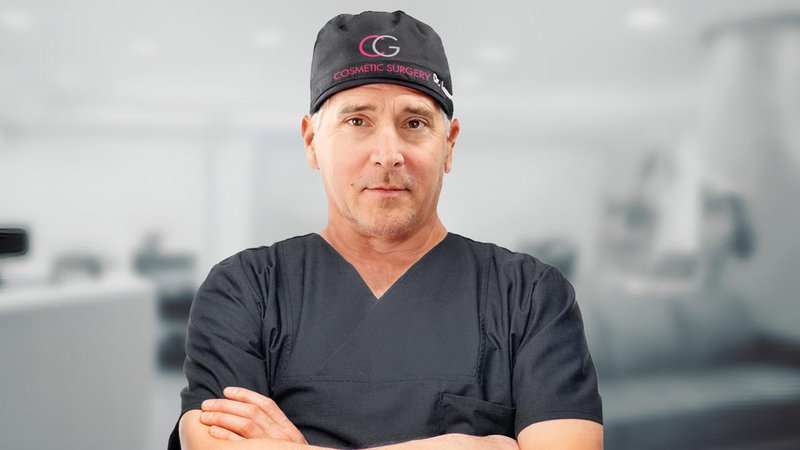
Board certified by the American Board of Plastic Surgery. American Society of Plastic Surgeons, American College of Surgeons, Fellow
Dr. Loessin and his staff provide a team approach to each patient’s unique situation and requirements
We understand that everyone has some feature of their image they wish they could change and are happy to help.
"Our team strives to provide patients with high-quality procedures and a positive experience.."